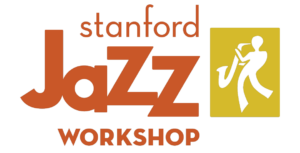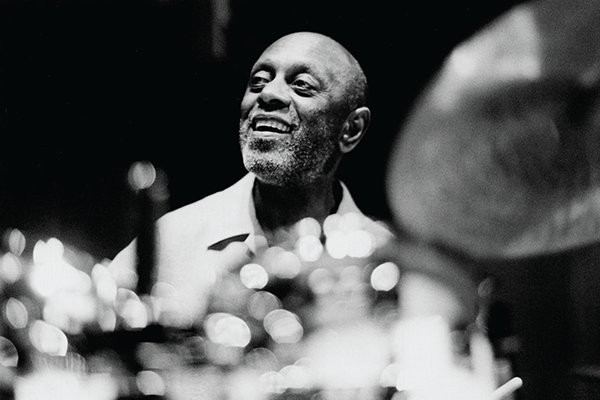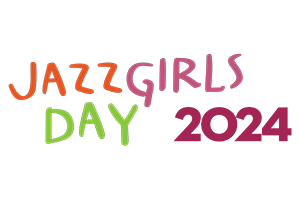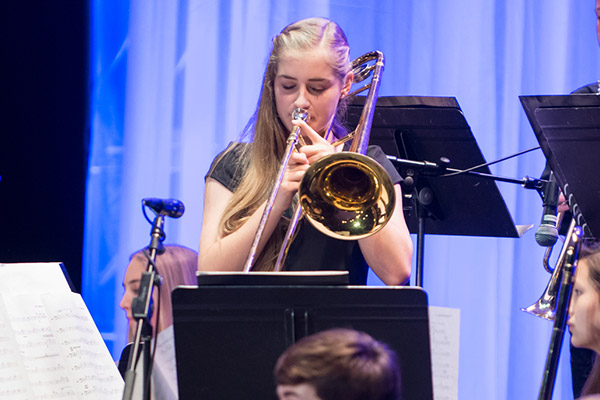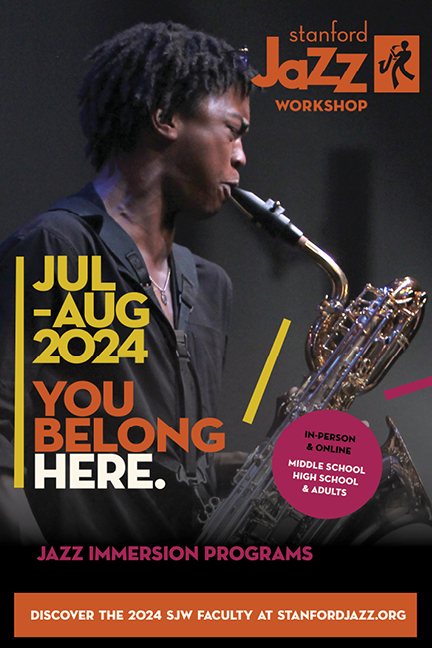Albert “Tootie” Heath, 1935 – 2024
/by Ernie RideoutBy Jim Nadel, SJW Founder and Director Emeritus
Photo by Mars Breslow
For 28 years SJW was incredibly fortunate to have Tootie Heath around to teach and play music and to hang out at our summer workshops. He gave us so much, both on and off the stage. He had a hugely positive effect on thousands of young musicians as well as our faculty and everyone who got to hear him play the drums. Tootie was a uniquely free and open spirit, generous with students and happy to share what he knew, and he was someone who could play music at an inspirational level and also speak respectfully and truthfully to young students in a way they may not have experienced before from their teachers.
Tootie was an inspiring player who provided a direct connection to the center of the music. He had lived the history and was part of it, and his friends were a Who’s Who of jazz greats. At SJW, he lit up the room with encouragement for all students as he threw open his arms and welcomed them into the jazz community. Like his older brothers, bassist Percy and saxophonist/composer Jimmy, he could be a stand-up comedian, and his classes were sprinkled with great stories from the jazz life and an entertaining take on his interactions with so many of the greatest artists of our times.
Tootie was born in Philadelphia where his older brothers became important players while Tootie, who was 12 years younger than Percy, was still a youngster. Their family home was a welcoming place for jazz players, and even at a young age Tootie met many great musicians living in Philly – John Coltrane, McCoy Tyner, Lee Morgan, Benny Golson – as well as others passing through, including Pres (Lester Young) and Bird (Charlie Parker). Tootie told me that when he was young and first starting to get significant work, his father was thrilled to be able to say, “My son’s playing with Pres!” Tootie told me that when he introduced them after the set, Pres gave his approval of Tootie’s drumming by saying in his colorful way to the proud father, “The &#%! vonces just right for me!”
Tootie also had a mischievous streak, and he could sometimes take things a little beyond the accepted bounds of decorum. I think he enjoyed helping people step out of their comfort zone. I know he was always joking, but understandably it didn’t always go over well with everyone. Later in life, whenever I was presenting him on stage, I was careful never to hand him a live microphone. I started to think that if Tootie had a theme song, it should be entitled “Straight, No Filter.”
Three things I loved about Tootie
I loved the way Tootie played the drums. He was always swinging and always listening while trying his best to bring whatever the music most needed in the moment. He had an uncanny ability to know when to respond or step forward to lead, and when to fall back to a more supportive role. His playing was sometimes understated but always felt good, full of nuance, and always super hip. His solos were like engaging short stories.
Tootie always played in service to the music. I remember a conversation with him telling me how he tries to use his snare drum in a way that complements the pianist’s left-hand comping so that while playing together, they ensure they don’t completely fill the space to the point where it gets too busy and the music loses its intensity. He always stressed to students that they had to be great listeners to play music well with others. And that he still practiced the drums every day, because it takes work to play jazz.
I loved the way Tootie interacted with students. His drum masterclass was always lots of fun and highly entertaining, full of spontaneous jokes and stories while at the same time completely serious about the music. Students had great respect for him, both for his musical knowledge and awareness and for his totally honest feedback. This was always delivered in a straightforward way that resonated for them as “real,” and he never spoke with judgement or shaming. Tootie was the first to compliment a student who tried and then made even incremental improvement, and it was my sense that students could feel his love for music, and they felt that they could trust him. When asked publicly about his teaching, Tootie would always carry on about how much he learned from the students every time he got into the classroom.
Every jazz musician is unique in how they approach playing the music, and they will all also be different in how they relate to students. Some teachers maintain an unspoken boundary between themselves and their students, sharing knowledge and information though maintaining a bit of distance. Tootie, like a lot of African-American jazz masters, came of age well before the civil rights movement of the ’60s and lived a life where personal safety sometimes required negotiating racism, bias, and exclusion. What stands out to me is the way that Tootie embraced and was wide open to all at SJW. He projected no line separating himself from students. His unspoken message to students was one of respect and inclusion, “Yes! Come into this house! You’re welcome here!” and he spoke comfortably across what for others might be impenetrable barriers of race, ethnicity, or social or economic status. Tootie lived right in the moment with an open heart. Many young people had never met anyone like him, and this was one of the ways that he transformed lives.
Tootie helped me enormously a few of times over the decades to resolve what seemed at the time to be deeply complicated and seemingly insurmountable interpersonal conflicts at SJW. One summer, two brilliant faculty members apparently had a serious misunderstanding. When we all gathered again a year later, it had developed into a full-blown feud, to the point that the two didn’t want to ever be in the same room together. I mentioned this to Tootie, and he quietly took them aside, and the next thing I knew, the problem had dissolved.
Another time there was an incident of theft, and an accusation and confrontation between two students. The staff found evidence, but had not yet revealed it, which was that one student was lying and had in fact stolen a rare cymbal from the other. I explained the situation to Tootie, and we met with them. I didn’t say a word, and Tootie, after calmly presenting the facts, found a way of defusing what could have been a traumatic outcome, getting everyone to see a bigger picture, while helping to find a path for those involved to reset and move forward. I thought of the wisdom of Solomon! At the time it seemed to me almost biblical.
One of the difficulties with having Tootie Heath on your faculty is that people so enjoyed being with him that on occasion someone would neglect their responsibilities. One year during Jazz Camp we presented an evening concert with a trio of young LA musicians led by a wonderful young pianist who had recently started getting some critical attention and his career seemed poised to take off. I’m not going to mention him by name, but yes, his career did subsequently catch fire and today he’s well known, highly respected, and recognized as an extraordinarily creative performer and recording artist who tours regularly with his group and who also collaborates on all kinds of high-profile projects. I mention all of this because the trio performance was incredible, and the students were captivated and excitedly looking forward to spending some time with them the next morning. The band’s contract had included a single additional event, a “Trio Playing” class and Q&A set for 10 a.m. the morning after the concert. We’d scheduled all the students to gather in our 200-seat venue at the appointed hour.
After their concert, when the band was dropped off at their hotel, the driver had reminded them that there was a lobby call for 9:40 a.m.. A “lobby call” for seasoned professional musicians is code for serious business, because these typically involve getting to the gig or airport on time. This hotel is only 5 -10 minutes away, so they’d have a few minutes at Stanford to chill before the class started. What could go wrong? Well, two things: One, they were young and not yet seasoned professionals, and two, they were staying at the same hotel as Tootie Heath, and his first event on campus was not until 11 a.m.
In a nutshell, the driver couldn’t find them at 9:40 a.m. He waited a few minutes, and then tried to call their rooms and cell phones to no avail. Getting worried he called me. I tried to call the pianist. Nothing. While we called and the driver searched, the margin-for-error minutes ticked off, and then as the class started without them, the pianist answered his phone at the hotel. Turns out that when they’d gone down to the hotel restaurant for breakfast, they ran into Tootie Heath, and the hang that evolved was so much fun, the stories and jokes so great, that they’d “lost track of time” (translated as “didn’t want to leave”). The young trio arrived 20 minutes late for a 60-minute class. I told them afterwards how I felt about their late arrival keeping 200 people waiting who could have instead been playing music, but to be honest, I had some empathy for them because when Tootie’s on, it’s a thrill to just be there.
Another time, we had orchestrated a once-in-a-lifetime drum masterclass that brought together for the first time Tootie, Billy Higgins, and Eddie Marshall. It was magical! The student helper who was responsible for monitoring the archival recording was enjoying the class so much that when the tape ran out, he ignored it because he didn’t want to leave for the 2 minutes it would’ve taken to go grab a new one. As a result, unfortunately, the second half of the class was not recorded.
On a lighter note, I should say something about Tootie with his older brothers Jimmy and Percy. I knew Tootie for the longest, but I also spent a lot of time with Jimmy who came to teach and perform many times, whereas Percy was only in residence at SJW a couple of times. They were all great artists who were also super good-humored, and they could be ridiculously amusing both individually and collectively. Their personality differences could sometimes provide the spark.
Jimmy was the most serious and had the greatest mastery of jazz composition and arranging, and he also made the worst puns. Percy had the greatest success in the marketplace while touring the world for four decades with the Modern Jazz Quartet, and he was quite the “bon vivant.” Tootie was the youngest, and had come a bit later to the party, though even when he was a mature and established jazz artist, the other two still teased him like he was still the “younger brother.” And the world may have reinforced this for a while. Early in the 21st Century, Percy and Jimmy had each been awarded the NEA Jazz Masters Award, the highest honor given in the USA annually to just a handful of jazz musicians. It wasn’t until a couple of decades later that Tootie was also the honored recipient of this same award. This always seemed like an oversight to me, though as I pointed out to Tootie, in the intervening years the cash prize that accompanied the award had been increased from $10K to $25K.
I became aware of the good-humored dynamic between the brothers when my wife Elizabeth and I first heard them play together in a live concert in LA. We’d joined them all for dinner at Tootie and his wife Beverly’s house in Altadena and, over a wonderful meal, were delighted and amazed at how much fun they had laughing, teasing each other, and enjoying that the Heath Bros. concert date had brought them together to create music and to hang out. There they were, almost transported back in time and home again in Philly, the city of brotherly love, laughing, loving, and carrying on with each other.
What I hadn’t expected was that when the Heath brothers came to teach and play at SJW a couple of months later, they’d bring a similar dynamic to their large class for the 200 students. At some point during Q&A, a student asked, “What’s it like playing music with your brothers?” Tootie answered first and said it was a lot of fun because they knew each other so well. But then, Percy added something that wasn’t quite on the same script. He said, and I paraphrase, that actually, sometimes there could be friction, like when one of the brothers was outspoken about a perceived problem with attire, because that brother, contrary to the others, thought that it was necessary that they’d all wear a coat and tie when on stage, and that . . . except Percy was abruptly cut off when Jimmy broke in, and even though Percy hadn’t mentioned specifically who he’d been talking about, it became immediately apparent as Jimmy spoke (with a little bit of heat) about the importance of showing dignity and respect for the music . . . and Tootie jumped in with a humorous comment about “older brothers” and pretty quickly the three brothers were riffing on each other, and the students were so engaged, laughing so hard and loving it all, which only encouraged the brothers to take it out even further, much to the delight of the students.
In addition to loving his drumming and his way with students, I’ve mentioned but didn’t identify the third thing I loved about Tootie. I loved Tootie’s life with his wife Beverly, and how they allowed each other such creative freedom and the way they shared their lives and took care of each other. Beverly is a strong and brilliantly creative woman who is an extraordinary artist, and both of their homes that I visited (in Altadena and Santa Fe) have been filled with art. Because of the depth of spirit expressed in Beverly’s work and in the other amazing art they’ve collected and have displayed alongside an archive of photographs and objet d’jazz, their home feels like a shrine celebrating life and music. They live every day surrounded by and immersed in the creativity of their busy lives, and their home has always been a warm, welcoming, and inspiring place for friends.
Tootie was a wonderful drummer and joyful human and has been an inspiration to me and so many musicians and listeners, young and old. His dedication to SJW and music education was a beautiful, powerful, and heartfelt labor of love that reached thousands of students and hundreds of thousands of listeners around the world. It’s hard for me to express my sadness at his passing and my huge gratitude to have been fortunate to have spent some time with him.
Tootie Heath, thanks for the music! We miss you.
Jim Nadel
Founder and Director Emeritus
Stanford Jazz Workshop
April 2024
